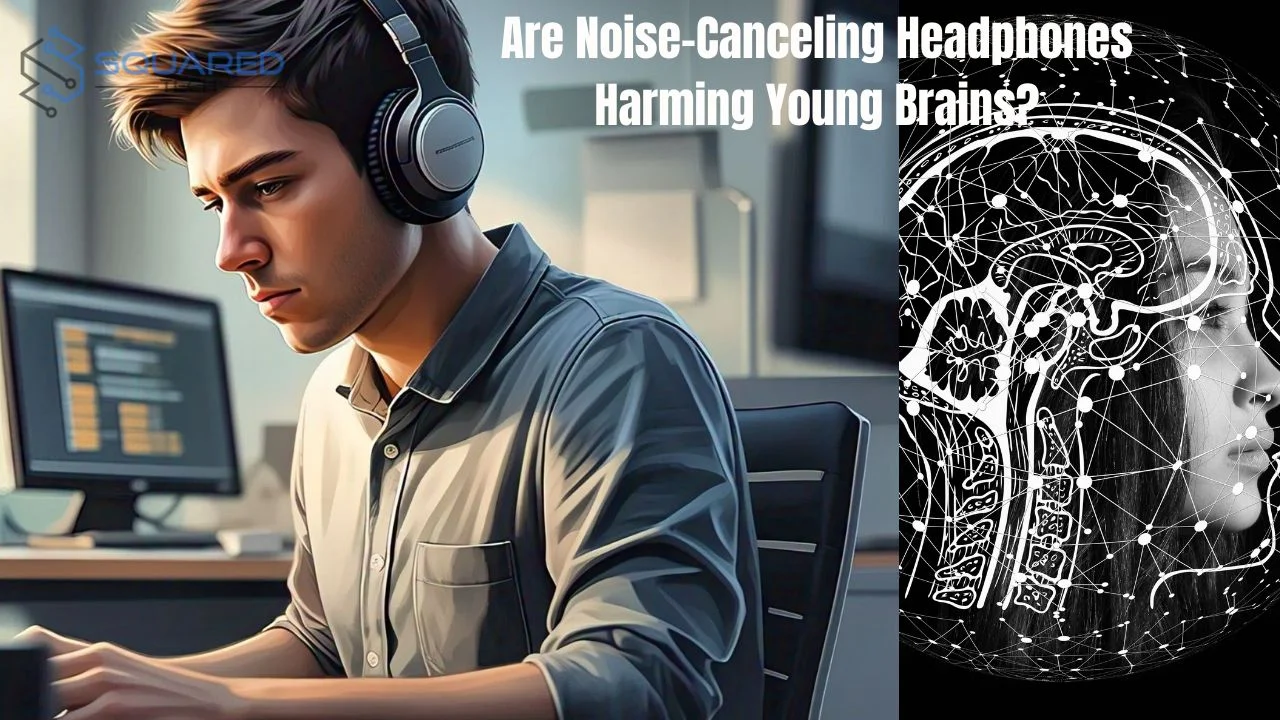Key Warnings About Noise-Canceling Headphones:
- Experts warn that excessive use of noise-canceling headphones may affect how the brain processes sound.
- Some young people struggle to interpret speech, even with normal hearing.
- Audiologists link this issue to reduced exposure to natural background noise.
- Limited healthcare resources make diagnosis and treatment difficult.
The Growing Concern Over Noise-Canceling Headphones
Noise pollution is a daily challenge, and many people rely on noise-canceling headphones to block distractions. While these devices help reduce stress and improve focus, experts warn they may also have unexpected effects on brain development, especially in young users. Some audiologists suggest that constant noise cancellation could interfere with the brain’s ability to process sound properly.
Check Out Latest Article Of The Ultimate Guide to Wireless Headphones in 2025: Top Picks for Every Budget Published on January 28, 2025 SquaredTech
How Noise Cancellation May Affect the Brain
A condition called auditory processing disorder (APD) affects how the brain interprets sounds. People with APD often struggle to focus on voices in crowded places or determine where sounds are coming from. Traditionally, APD has been linked to factors like brain injuries, ear infections, or neurodiversity. However, doctors in England have reported a rising number of young patients with APD-like symptoms, despite having no history of these risk factors.
Some experts believe that frequent use of noise-canceling headphones could be delaying proper auditory development. By blocking out natural background noise for long periods, the brain may lose its ability to filter and process sounds effectively.
Real Cases and Expert Warnings
One example is Sophie, a 25-year-old administrative assistant diagnosed with APD. She used noise-canceling headphones for up to five hours a day and later found it difficult to understand speech without subtitles. Conversations and lectures often became difficult to follow, which led to her diagnosis.
Claire Benton, Vice President of the British Academy of Audiology, explains that isolating the brain from natural sound environments may hinder the development of listening skills. If a person primarily hears controlled sounds, such as music or podcasts, their brain may struggle to adjust to real-world noise.
The Rise in APD Diagnoses Among Young People
Several NHS audiology departments have reported an increase in young people seeking help for hearing difficulties. However, tests show their ears function normally. The problem lies in their brains, which struggle to filter and interpret sound correctly.
Despite the growing concern, diagnosing APD remains difficult. England’s public healthcare system offers very few diagnostic resources, with only one NHS provider conducting full assessments. Patients face long waiting lists, sometimes up to nine months, as testing requires extensive evaluations lasting several hours.
Should You Stop Using Noise-Canceling Headphones?
Experts are not calling for people to stop using noise-canceling headphones altogether. These devices help prevent noise-induced hearing loss and protect ears from prolonged exposure to loud environments. However, audiologists stress the importance of balance.
For teenagers and young adults, regular exposure to natural background noise is essential for proper auditory development. Using noise cancellation occasionally is fine, but relying on it constantly may weaken the brain’s ability to filter sounds in everyday life.
The Takeaway: Use in Moderation
Noise-canceling headphones offer valuable benefits, but overuse could lead to unintended consequences. Experts suggest limiting use, especially for young people, to ensure their brains continue developing the ability to process sounds effectively. By maintaining a balance between quiet and natural noise, users can enjoy the advantages of noise cancellation without risking their long-term auditory health.
Related:
The Best Noise-Canceling Headphones to Buy Right Now: Top Picks for Every Need Published on July 17, 2024 SquaredTech
Beats Solo 4 : Great Audio Performance at a Premium Cost Published on October 22, 2024 SquaredTech
Stay Updated: Gadgets


